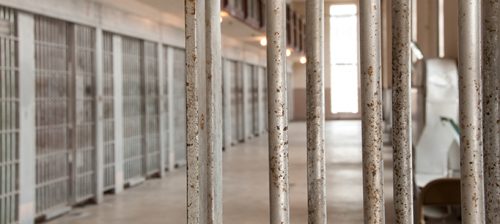

By Michael Apfel, Cynthia Hoang-Duong and Elina Sadeghian
NEW YORK, NY – Sixty-six elected prosecutors nationwide have now agreed to visit correctional facilities their offices have placed individuals in as a part of Fair and Just Prosecution’s efforts to advance the #VisitAPrison challenge.
The challenge was started by the Families Against Mandatory Minimums advocacy group, an organization dedicated to promoting criminal justice and prison reform.
Signatories represent 28 different states and the District of Columbia, which will participate in the program that emphasizes how “it is vital for prosecutors to understand the true impact of their decisions and to see firsthand the jails, prisons, and juvenile facilities in their jurisdiction.”
Miriam Krinsky, Executive Director of Fair and Just Prosecution, noted the harm caused by lawmakers’ ignorance of the consequences of American incarceration.
“It’s hard to grasp how incarceration can cause irreparable harm to people if you haven’t seen the inside of an American prison or jail,” Krinsky said.
“Yet, every day across the country, prosecutors who’ve never stepped foot in these facilities are making decisions that significantly impact whether someone will be removed from their community and sent to spend time behind bars,” added Krinsky, characterizing the effort as a sign for hope in incarceration advocacy.
“We’re proud to stand with the elected prosecutors who have made it a priority for their staff to see the conditions of confinement in their local correctional facilities. We hope these experiences will build empathy, heighten awareness of the need for alternatives to incarceration, and inspire other elected leaders to join the pledge,” Krinsky said.
Mass incarceration continues to plague the U.S., with more than 10 million jail admissions and around 600,000 people are sent to prison annually, argue criminal justice reformers, who note prosecutors often know little about correctional facilities despite the role they play in placing people in them.
Reformers suggest a more comprehensive understanding of these facilities by prosecutors along with prosecutorial reform designed to reduce jail and prison populations is critical in this field of advocacy.
They insist the isolating, dehumanizing and unsafe conditions common across correctional facilities has detrimental effects on those in the system and the communities which reformed individuals return to, and shining a light on this issue to prosecutors around the country is likely to reduce the related harm.
Ramsey County (St. Paul, MN) Attorney John Choi, a prosecutor who signed the pledge, wrote in a new reflection piece the impact of his personal trips to correctional facilities his cases were sent to following disposition or conviction.
“For too long, prosecutors have taken the position that we have no control over what comes to our door nor what happens to people once we have secured their conviction, including the collateral consequences imposed by the legal system because of our actions,” Choi said.
Choi added, “That can no longer be the case…By providing our staff opportunities to build proximity to the people most impacted by the decisions we make, giving them a sense of not only the facilities they are sending people to and their programs, but what they really look and feel like, we are humanizing the experiences of people subjected to the legal system.”
Fair and Just Prosecution said the pledge, last issued in July 2022, now includes many prosecutors more receptive to reform who have recently assumed office, and that the mandated visits aim to set a reform-minded culture and influence expectations among prosecutors that may send individuals to correctional institutions.
FJP added participating offices have committed to these visits during the coming years, as the elected leaders and prosecutors in their offices complete visits to their local correctional facilities.
“As a recently elected county attorney, it’s important to me that our staff fully understand the consequences and impact on an individual and the community when they ask for a jail or prison sentence. That empathy and understanding is not possible without seeing our local correctional facilities up close and speaking to those who live and work in them,” said Hennepin County, Minn. Attorney Mary Moriarty, a prosecutor who signed the pledge.